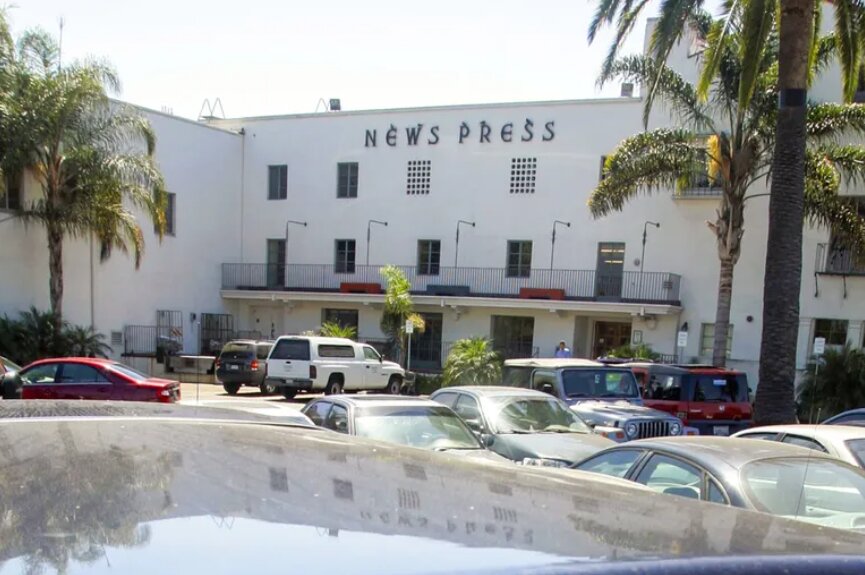
As if on cue, layoffs and disruption rocked two California dailies right after state legislators tabled a measure to help sustain local newspapers.
Circumstances were different at the Santa Barbara News-Press, which abruptly shut down last week, and The San Diego Union-Tribune, which was sold to an extractive hedge fund the week before.

But chances are good that both would have seen better outcomes if the California Journalism Preservation Act was passed this year, putting publishers on the path to getting fairly compensated by tech platforms. Amid a time crunch and questions from critics, legislators announced on July 7 that it was paused until 2024.
Better outcomes would also be likely if bipartisan journalism bills in Congress hadn’t stalled over the last two years. Both are being considered again later this year and should have new urgency, with layoffs increasing as substantial newspapers fail or get sold to miserly chains.
This comes on top of more than 40,000 newspaper jobs lost since 2008 and an average of two papers a week closing in recent years. What else will it take to convince policymakers that they must act quickly to sustain local journalism and the essential service it provides communities and democracy?
One of the federal bills would provide temporary tax credits for publishers retaining newsroom jobs, while they work to stabilize business models. It’s now dubbed the Community News & Small Business Support Act.
I’d bet the independent, local owners would have kept publishing the San Diego and Santa Barbara dailies if there was certainty that those tax credits would be available.
Similarly, the promise of newspapers finally getting fairly paid by the tech platforms profiting from their content, under the California bill and the federal Journalism Competition and Preservation Act, might have encouraged those publishers to keep going.
Or, if publishers were absolutely committed to moving on, tax credits and digital content deals would make the papers more attractive for other local investors.
“The Santa Barbara News-Press is just the latest example of what we’ve been saying: The revenue has moved to the platforms and something needs to be done,” said Charles Ford Champion II, president and CEO of the California News Publishers Association.
While California lost a fourth of its newspapers over the last two decades, it’s a relative hotbed for newspaper entrepreneurs, with all manner of business models being pursued among the association’s 450 dailies, weeklies and digital news sites, plus dozens of other outlets. They include chains owned by Wall Street types such as Alden Global Capital; regionally owned news groups; nonprofits supported by communities and foundations; and independent, for-profit papers.
Champion said this reflects the state being an incubator of new ideas.
“We’re seeing successes, seeing some people get some traction,” he said. “The concern I have is sustainability.”
California has generous benefactors, Champion said, including foundations and associations willing to support news ventures, “with some expectation they’ll be self-sustaining at some point.”
“I just don’t know if we can count on the foundations of the country to support community news indefinitely,” he said.
The same apparently goes for some of the wealthy individuals who stepped in to become publishers, but hopefully not all. As I said, the two California dailies are unique situations that shouldn’t dissuade others looking to save or revive their local papers. Local benefactors are needed by papers in every state and should be encouraged by the legislation.
Santa Barbara’s daily is owned by Wendy McCaw, a former wife of telecom pioneer Craig McCaw. She bought it from The New York Times for a reported $110 million in 2000, just as the industry began its steep decline. She raised hackles with newsroom meddling and, in a generally liberal community, editorializing in support of President Donald Trump.
The News-Press ended home delivery last October, turning to postal delivery. It moved out of its historic building in April and stopped printing physical papers in June. It filed for bankruptcy Friday, stopped publishing over the weekend and let employees go without a final paycheck until the bankruptcy settles, local online site Noozhawk reported.
To the south, the biotech billionaire who bought the Los Angeles Times and San Diego Union-Tribune in 2018 sold the latter to a chain run by the notoriously stingy Alden.
Patrick Soon-Shiong and his family bought both papers from Tribune Publishing in 2018 for $500 million. The sales price to Alden wasn’t disclosed in the July 10 revelation but Alden promptly announced layoffs.
Champion called the move a “refocusing” that “allows Patrick and his team at the Los Angeles Times to focus on L.A. and building it back up.”
As for Santa Barbara, it’s not a news desert yet because other news outlets remain in the area. There is enough wealth and support for journalism there that Champion believes another person or group of individuals could potentially revive the local daily, which was founded in 1855.
Chances of a happy ending would be much better, though, if legislation stopped newsrooms’ bleeding, leveled the playing field online and helped such papers continue for another 170 years.
Brier Dudley on Twitter: @BrierDudley is editor of The Seattle Times Save the Free Press Initiative. Its weekly newsletter: https://st.news/FreePressNewsletter. Reach him at bdudley@seattletimes.com.
Comments
No comments on this item Please log in to comment by clicking here